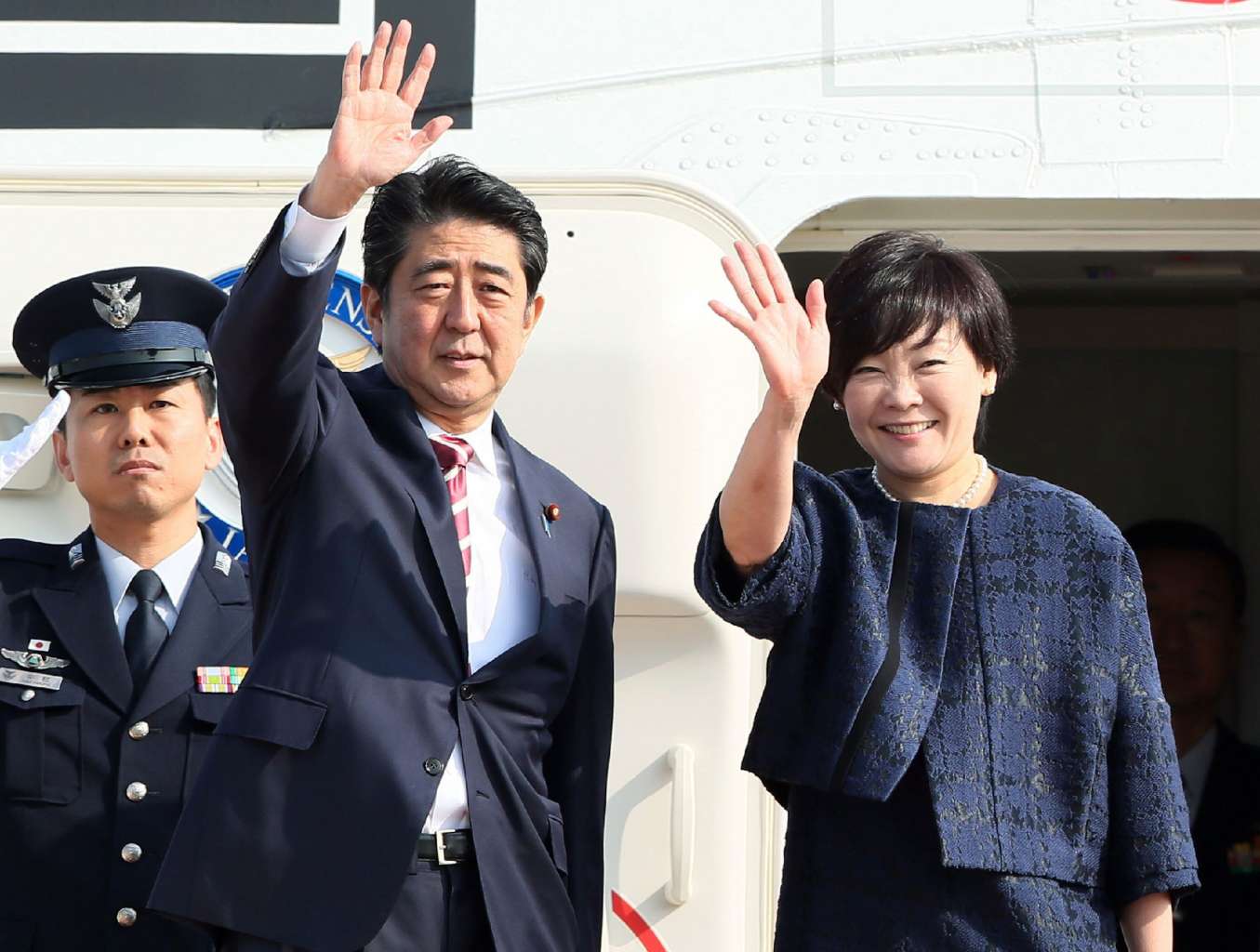Japan's Abe heads to Central Asia to cement business ties
Sign up now: Get insights on Asia's fast-moving developments

Japanese Prime Minister SHinzo Abe and his wife Akie leave the Tokyo International Airport on Oct 22, 2015, for a week-long Central Asia tour.
PHOTO: AFP
TOKYO (AFP) - Japanese Prime Minister Shinzo Abe on Thursday (Oct 22) left for a week-long tour to Mongolia and five Central Asian nations, eyeing billions of dollars in business deals as China boosts its influence in the resource-rich region.
The conservative leader, who has been pushing to kick-start the world's number three economy, was accompanied by representatives of about 50 Japanese firms.
He is to arrive in Ulan Bator later in the day, his first visit to Mongolia since 2013.
He will later travel to Kazakhstan and Uzbekistan, and make the first-ever official visit by a Japanese premier to Turkmenistan, Tajikistan and Kyrgyzstan.
"Mongolia and Central Asia are at the centre of Asia and very important geopolitically," Abe told reporters at a Tokyo airport ahead of his departure.
These countries "have relied on exports of natural resources, but now are seeking high-quality infrastructure as they aim for an economy based on high value-added" industries. "I'd like to take a huge step in boosting ties with each country."
Abe has gone on a whirlwind global tour since sweeping to power in late 2012, visiting dozens of countries in a bid to boost Japan's economy.
During the tour, Japanese engineering firm JGC and four other companies are expected to sign a one trillion yen (S$11.6 billion) deal in Turkmenistan for the construction of a plant linked to natural gas fields, the leading Nikkei business daily said.
As rival China seeks to tap the region through its new Asian Infrastructure Investment Bank (AIIB), Abe has pledged to triple infrastructure orders from Japanese firms globally, including in Central Asia, to 30 trillion yen by 2020.
The AIIB is seen as a rival to the Washington-based World Bank and the Manila-based Asian Development Bank, which has been headed by biggest donor Japan since it was founded in 1966.
The US and Japan have notably declined to join the China-led AIIB.
Observers say China's influence in Central Asia has been growing as Russia's has declined, with Beijing becoming the region's leading trading partner.
Chinese President Xi Jinping unveiled the Silk Road Economic Belt - a vision of massive investments in infrastructure to power overland trade and economic integration across Eurasia - during his speech given in energy-rich Kazakhstan in 2013.


